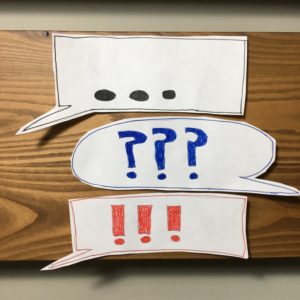Hello, everyone. I’m excited to announce that this is my first of many editions of Communication Error, where I will shed light on the common ways we fail to communicate to each other properly and how taking a few extra steps can save us time and pain in the backside.
We underestimate how crucial communication is in our daily lives, yet everyone will notice poor communication, or when communication goes all wrong. For example, we’ve all sent an email to a professor or co-worker with a set of questions only to get a response with a from-the-hip sentence or two, leaving us scratching our heads as to which question they answered, if any at all, the whole thing resulting in confusion and frustration. So, what went wrong?

On the one hand, certain situations can leave us at a loss for words; describing how we feel is impossible. On the other hand, daily interactions are simple, straightforward, and easily understood, right? The problem is, it doesn’t matter how little or how much we communicate; we tend to assume others know what we mean, even if we haven’t said it.
There are a number of reasons for this, but, regardless, this miscommunication happens and leaves others to interpret what we have said, commonly getting it wrong. If you too have had your fair share of excessive back-and-forth text messaging in an attempt to clarify yourself or find out what you said wrong, then I’m sure you wish there were some easier way for people to understand you.
Technology has certainly made communication more accessible with texting (just as it has with social media and email), but in many ways it overlooks the complexities of our language’s context, tone, and non-verbals. We oversimplify our responses, intending to mean far more than “how’s it going?” or “okay” (my personal favourite is the stand-alone message containing only “haha”). Consequently, miscommunication soon follows, as these quick and hasty responses can require unpacking and further details that don’t always get included. Our brains want to skip the details or we think the other person doesn’t want to hear insignificant information.
This is when communication goes off the rails—the other person has assumed that you understand them (they have no reason to think otherwise) and moves on, although you haven’t told them what you fully mean or that you don’t understand what they’ve said.
This all sounds extremely complicated, you might say; well, the truth is, it is. If we take a few moments between our responses and reactions, we are able to better understand how we feel and what we are thinking, or, rather, what we truly want to say—things that cannot be said with a few simple words.
